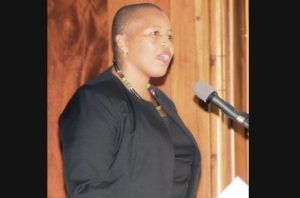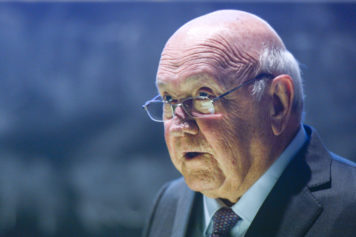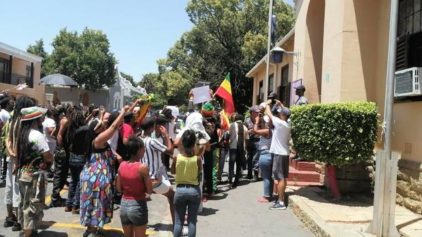Jamaica’s pioneering role in the fight to dismantle the evil regime of apartheid was highlighted during a memorial service in tribute to Nelson Mandela at the University Chapel in Kingston, yesterday.
Jamaica was the first country in the Western Hemisphere and second in the world to India, to officially ban trade and travel with the fascist apartheid government that practiced a brutal form of racism in South Africa.
During the reading of the eulogy, South African High Commissioner to Jamaica Mathu Joyini conveyed a message of gratitude from the South African people to Jamaica.
“My government has asked that I convey the gratitude to the government and people of Jamaica for the support, solidarity and bond of friendship between the two countries. Jamaica played a significant role in the dismantling of apartheid, not only in South Africa but in the region. It is that solidarity which has carried South Africa through some difficult times,” Joyini said.
In his historical overview, Professor Rupert Lewis said Jamaica’s involvement in the fight against the racist regime begun decades before national hero and former Premier Norman Manley officially banned trade and travel with South Africa in 1956, when Jamaica was still a colony of Britain.
Lewis said Jamaica’s contribution began in 1901 when Pan-African committees were set up in various parishes by Robert Lowe and began to strike out against the trials of the South African people and educated Jamaicans about the Boer war.
National hero Marcus Garvey, Lewis said, was also active in the fight against apartheid in the 1920s. “Garvey hosted mass meetings in the United States. He was an inspiration to many South Africans,” he added.
Lewis added that it was in the 1970s that the country’s solidarity with the African National Congress gained steam with the rise of Rastafari, the Black power movement, while radical students – bolstered by the activism of South African-born journalist Peter Abrahams – also helped to shed light on the plight of the black South Africans.
Former Prime Ministers Hugh Shearer and Edward Seaga were also very vocal about the horrors of the system at the United Nations, Lewis said.
He also pointed to former Prime Minister Michael Manley, who was supported by the late Dudley Thompson, who drew the ire of then American Secretary of State Henry Kissinger for his refusal to condemn Angola’s independence which was won in January 1975, when the Portuguese government, the National Union for the Total Independence of Angola, the Popular Movement for the Liberation of Angola, and the National Liberation Front of Angola signed the Alvor Agreement.
Source: Jamaicaobserver.com



